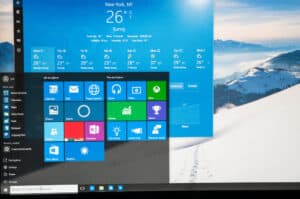
Web browsers use a huge chunk of your memory (RAM and hard drive) and CPU. Most web browsers use more of your PC resources than regular applications. But there are also web browsers that use minimal RAM. Now, the question is, which browser uses the least RAM on your PC?
Microsoft Edge from Microsoft is by far the best web browser that uses the least RAM. Edge replaced Internet Explorer on Windows PC and was explicitly designed to be lighter without compromising functionality and performance.
While Microsoft Edge is the best web browser with the least amount of RAM, several other web browsers can also serve the same function. You need to know these web browsers, particularly when your PC has limited resources such as RAM and CPU. Running heavy web browsers on a PC with limited resources will significantly affect its performance, causing it to lag.
Find out more about these web browsers in this article.
Browsers RAM Usage Comparison
Knowing which web browser uses the least RAM is vital to improve your workflow if you do most of your work or web surfing with a web browser. Moreover, when looking for web browsers that use the least RAM, it’s essential also to consider one that doesn’t compromise on functionality and performance. Because at the end of the day, what’s the use of a web browser that doesn’t use much RAM if you can’t use it to perform basic tasks such as streaming videos and several others?
Each web browser has unique features that distinguish it from other web browsers. So, choosing a web browser and looking for one with the least RAM is good; however, you should also consider performance. Based on their popularity and performance, we’ve selected these five best web browsers for Windows and Mac PCs that use the least RAM in descending order.
Web Browser #1: Microsoft Edge
Microsoft Edge web browser may not be the most popular choice, but it stands out in certain areas. And one particular area in Microsoft Edge that stands out is that it uses the least amount of RAM on PCs without compromising on performance. When it comes to optimization and battery usage, Microsoft Edge is the best web browser you can choose to use.
Based on multiple tests, Microsoft Edge uses less than 800 MB with up to 10 tabs opened, which is much lower than many web browsers today. And the best part about Microsoft Edge is that it uses the same Chromium engine as Chrome yet can save many of your PC’s resources. However, this does not necessarily mean it is the best browser, but when you want the best browser that will help conserve your PC resources, Microsoft Edge is a perfect choice.
Web Browser #2: Opera
Next on our list is this great web browser that has been around since 1994, Opera. Opera is an ideal web browser for old PCs and those with low specs. Its web loading speed is within acceptable limits. Opera also comes with the exciting Opera turbo boost, which compresses web pages using an Opera-owned server.
After using this browser for a while, we discovered that it used less than 900 MB of RAM with up to 10 tabs opened. This test confirms that the browser is genuinely lightweight and user-friendly.
Web Browser #3: Brave
Brave is a new web browser launched in 2019 that uses the least amount of your PC RAM. Brave is one of those browsers that prioritize the security and privacy of its users. If you want to stay in control of your data, Brave is the browser you want to use. This web browser even has a feature that rewards you for watching ads.
When it was first released, Brave consumed as much RAM as Chrome. But as time passed, they improved on how resource efficient it is and now have better memory management. So Brave might not be the best web browser with the least RAM, but its RAM usage is acceptably low and comes with other useful features that make it worth using.
Web Browser #4: Mozilla Firefox
Firefox is a very popular web browser you’d find on many PCs. It’s also not a new web browser as it has been making its rounds in the industry since 2004. Firefox is popular for being the most suitable for privacy, giving it touch cookies and trackers.
When we tested Mozilla Firefox by opening 10 tabs, it used moderately above 900 MB of RAM. Although it is not the least RAM-hungry web browser, it stands out as one of the best web browsers in terms of performance.
Web Browser #5: Google Chrome
Google Chrome is by far the most popular web browser in the industry. But it is often defamed because it uses too much RAM. The truth is that Google Chrome uses a lot of RAM, but not as significantly high as many people overemphasize it.
On average, after testing Google Chrome multiple times, we found that on opening 10 tabs, it uses less than 1000 MB. On a PC with up to 8 GB of RAM, which is what most PCs have, it’s no big deal if a web browser uses up to 1 GB of its resources.
A web browser’s ideal amount of RAM depends on you as the user. As a casual web surfer, 1 to 2 GB of RAM is sufficient; as an intermediate web surfer, aim for 2 to 4 GB of RAM, and for an advanced web surfer, 8 GB and above is optimal.
Conclusion
As you can see from this guide, Microsoft Edge is the best browser with the least RAM usage, while Google Chrome uses way more RAM but can conveniently outperform Microsoft Edge.
Consider what your PC can conveniently handle when choosing which web browser to use. Even though you may need a more diverse web browser, it’s essential to stay well within the capabilities of your PC so you don’t end up experiencing performance issues.








